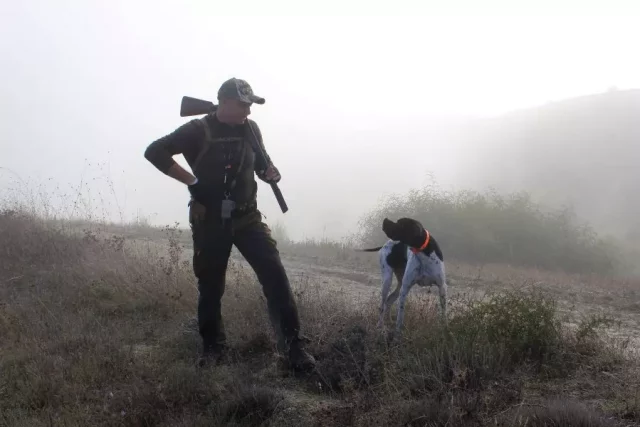Some people seem to be born hunters. They have an uncanny knack for tracking and trapping prey, and they can do it with minimal fuss and bloodshed. For the rest of us, learning to get better at hunting is a matter of practice and patience. Have you ever felt like you can’t get the hang of hunting? Maybe you’ve been out a few times and had some success, but you feel you could be doing better. Or perhaps you’re just getting started and overwhelmed by all the information. Don’t worry, we’ve got you covered. Here are seven helpful tips to get better at hunting.
1. Get The Right Gear
One of the most important things you can do to up your hunting game is to get the right gear. This doesn’t mean going out and buying the most expensive equipment, but it does mean getting gear that suits your needs and the type of hunting you’ll be doing.
For example, if you’re planning on doing a lot of deer hunting, you’ll want to ensure you have a good quality rifle and scope. Check out this website for advice on how to pick the right gear. A shotgun might be better if you’re mostly interested in small game. And if you’re planning on doing duck hunting, you’ll need a good waterfowl shotgun.
No matter the weapon you eventually get for your specific needs, you must ensure precision when shooting. Lots of hunters are improving accuracy with optics that fit to the weapon, such as scopes and sights. This way, they can have a better vision of the target and make sure that every bullet is directed where it should be.
2. Hunt Small Game First
Hunting small games can be a great way to improve your hunting skills. Small games such as rabbits, squirrels, and raccoons are relatively easy to track and kill and provide a good opportunity to practice your shooting skills. To hunt small game effectively, you’ll need to know where to find them and how to track their movements. You’ll also need the proper equipment, including a rifle or bow, camouflage clothing, and a decoy.
Once you’ve got the basics down, hunting a miniature game can be a lot of fun. You’ll never know what you’ll see next – a squirrel darting across the path, a rabbit hiding in the bushes, or a raccoon raiding your campsite. With some practice and patience, you’ll be able to take down these creatures easily. If you are bow hunting and just a beginner make sure to follow this guide to know the basics of bow hunting https://www.
3. Know Your Prey
One of the most important things you can do to improve your hunting skills is to learn as much as possible about your prey. What types of animals are you interested in hunting? Deer, elk, moose, caribou, bear, coyote, fox, rabbits, squirrels, raccoons?
Each type of animal has its habits and behaviors that you’ll need to be familiar with if you want to succeed. For example, deer are most active at dawn and dusk, while bears tend to be more active at night. Knowing when and where your prey is active is critical for finding them and getting a shot off.
In addition to knowing their habits, it’s also important to know what they eat and where they live. This will help you find them in the first place. Deer, for example, tend to eat leaves, twigs, and grasses, so looking for areas with fresh browse is a good way to find them.
4. Learn How To Track
Tracking is one of the most critical skills a hunter can have. It allows you to follow the movements of your prey, find them when they’re hidden, and take them down with ease.
To track effectively, you need to be able to read the signs left behind by your prey. This includes tracks, scat, hair, and feathers. Studying these signs gives you a good idea of where your prey is headed and what they’re doing.
In addition to reading the signs, you also need to be able to interpret them correctly. Just because you see a set of deer tracks doesn’t mean the deer is around the corner. They could have been there hours ago, or they could be miles away. The best way to learn how to track is by getting out in the field and practicing. Start by following the tracks of small animals such as rabbits and squirrels. As you get better at it, move on to bigger games such as deer and elk. The more you practice, the better you’ll become at tracking your prey.
5. Use The Right Equipment
Having the right equipment is critical for hunting success. The type of equipment you need will depend on the game you’re hunting and the methods you use. For example, if you’re stalking your prey, you’ll need a good pair of boots, camouflage clothing, and binoculars. If you’re setting up a blind or stand, you’ll need different gear, including a ladder, tree stand, ground blind, and decoys. No matter what hunting you’re doing, ensure you have the proper equipment before heading out. You last want to be unprepared when an animal shows up.
6. Practice Your Shooting Skills
If you want to be successful at hunting, you must be able to shoot accurately. This means practicing your shooting skills regularly. The best way to do this is by going to a shooting range and sighting your rifle or bow.
Most ranges will have targets of different sizes set up at different distances. Start by taking shots at the largest targets from the closest distance. Then work your way back and take shots at smaller targets. As you practice, pay attention to your form and breathing. A good way to steady your shots is by exhaling as you squeeze the trigger.
7. Stay In Shape
Hunting can be physically demanding, especially if you’re hiking long distances or carrying a large animal. This is why staying in shape before heading out on a hunt is essential. Start by doing cardio exercises such as running, biking, or swimming. These will help increase your endurance and stamina. It would help if you also did some strength-training exercises such as lifting weights or doing squats and lunges. These will help you stay strong and avoid injuries while hunting.
By following these tips, you’ll be on your way to becoming a better hunter. Remember, practice makes perfect. The more you hunt, the better you’ll become at it. Also, don’t forget to have fun. Hunting is supposed to be enjoyable, so ensure you’re doing it for the right reasons. If you’re not enjoying yourself, then there’s no point in doing it.














